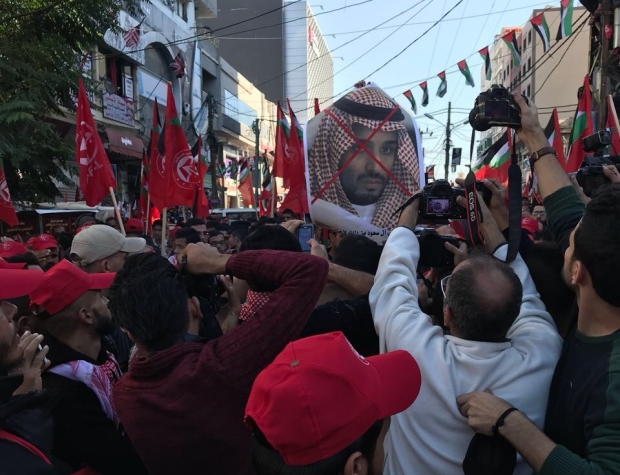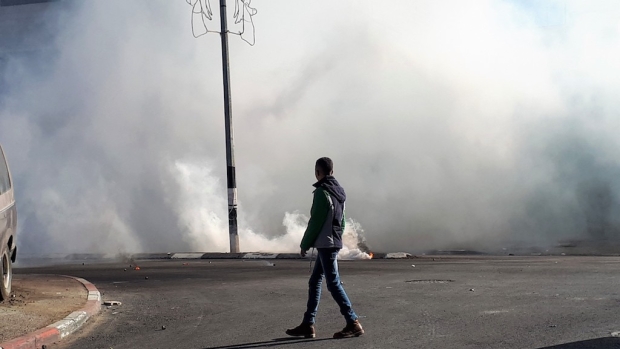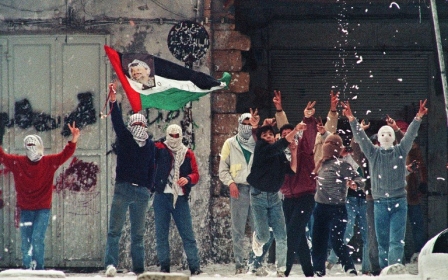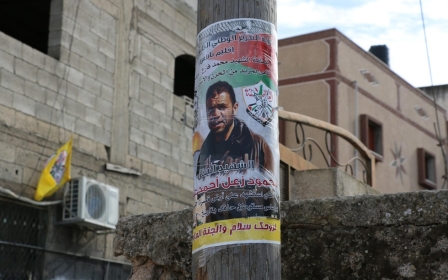Palestinian protests continue as Abbas pledges to snub US vice president's visit
Demonstrations against the US recognising Jerusalem as Israel's capital have continued to rock Gaza and the West Bank, as Palestinian President Mahmoud Abbas announced he will not visit US Vice President Mike Pence during his forthcoming trip to the region.
Abbas said that the US had crossed a "red line" over the decision by President Donald Trump on Wednesday to move the US embassy to Jerusalem from Tel Aviv, an aide said on Saturday.
"There will be no meeting with the vice president of America in Palestine," diplomatic adviser Majdi al-Khaldi told AFP.
"The United States has crossed all the red lines with the Jerusalem decision," he added.
The White House warned on Thursday that cancelling the meeting planned for later this month in the West Bank would be "counterproductive," but Abbas has been under heavy domestic pressure to shun Pence following Trump's recognition of Jerusalem as Israel's capital.
Jibril Rajoub, a senior member of Abbas's Fatah party, told AFP the same day that Pence was "not welcome in Palestine".
Pence is expected to visit Israel and the Palestinian territories sometime before Christmas.
Protests continue
In the West Bank city of Bethlehem, hundreds of Palestinians took to the streets of Bethlehem on Saturday morning.
Israeli forces shot large quantities of tear gas towards the crowd continuously throughout the day on the Jerusalem-Hebron road, with dozens suffering from excessive tear-gas inhalation. Scores of tear-gas canisters littered the street where demonstrations have taken place for the past three days.
A Middle East Eye reporter on the scene witnessed two demonstrators being taken away by ambulances for treatment, and at least one instance of rubber-coated bullets being shot towards some protesters early in the morning.
A Palestinian Red Crescent Society spokesperson told MEE that 12 people had been injured by tear gas and rubber-coated steel bullets in Bethlehem by mid-afternoon. Meanwhile, protesters, the majority of them young boys and men, erected a barricade blocking the road and threw stones in the direction of an army base north of Bethlehem.
In East Jerusalem about 60 people demonstrated near the walled Old City, where paramilitary border police and officers on horseback tried to disperse the crowd with tear gas.
On Friday, thousands of Palestinians took to the streets in protest and two Palestinians were killed in clashes with Israeli troops on the Gaza border. Scores more were wounded there and in the West Bank.
Across the Arab and Muslim worlds, thousands more protesters had gathered to express solidarity.
Trump's reversal of decades of US policy has infuriated the Arab world and upset Western allies, who say the move is a blow to peace efforts and risks sparking more violence in the region.
The Palestinian Centre for Human Rights (PCHR) called on the international community to intervene to prevent disproportionate force being used against the demonstrators.
"PCHR follows up with deep concern the deteriorating situation in the occupied Palestinian territory (oPt) and condemns the Israeli forces’ excessive use of force against protestors," the organisation said in a statement.
"PCHR believes that all of this happened after the Israeli forces were given the green light following the American decision to declare Jerusalem as the capital of Israel, directly constituting complicity in a crime of aggression and indirectly threatening the international security and peace.
"PCHR calls upon the international community and UN bodies to intervene to stop the Israeli crimes and escalating violations and to provide international protection for Palestinians in the oPt."
PFLP supporters carried placards criticising Trump and Saudi Crown Prince Mohammed bin Salman, who has been seen as moving Saudi Arabia closer to Israel.
"The PFLP ... emphasized that its march of anger and revolution will raise its voice against US imperialism, Zionist colonialism and Arab reactionary collusion," the group said in a statement on their website.
"It demanded the Palestinian Authority end its continued reliance on negotiations and end security coordination with the occupier."
A spokesperson for the Abu Ali Mustafa Brigades, the armed wing of the PFLP, said they were open to targeting US interests in the region following the embassy move.
“We confirm that the US imperialist enemy is not welcome on Palestinian land,” said a spokesperson for the group.
'Day of rage'
Israel launched fresh air strikes on the Gaza Strip on Saturday in response to rocket fire from the enclave, and the Palestinian Hamas group said two of its gunmen were killed in the bombings.
Militants fired at least three rockets towards Israeli towns from the Hamas-controlled strip on Friday, which was declared a "day of rage" by Palestinians protesting against US President Donald Trump's recognition of Jerusalem as Israel's capital.
A Hamas source confirmed that the two men killed in the strikes belonged to the group, which urged Palestinians to keep up confrontation with Israeli forces.
More than 15 injuries were reported at a hospital in the northern Gaza Strip as a result of Israeli shelling of various locations.
About 60 Palestinian youths threw stones at Israeli soldiers across the Gaza-Israel border and the health ministry said one bystander was wounded by Israeli gunfire.
New MEE newsletter: Jerusalem Dispatch
Sign up to get the latest insights and analysis on Israel-Palestine, alongside Turkey Unpacked and other MEE newsletters
Middle East Eye delivers independent and unrivalled coverage and analysis of the Middle East, North Africa and beyond. To learn more about republishing this content and the associated fees, please fill out this form. More about MEE can be found here.






